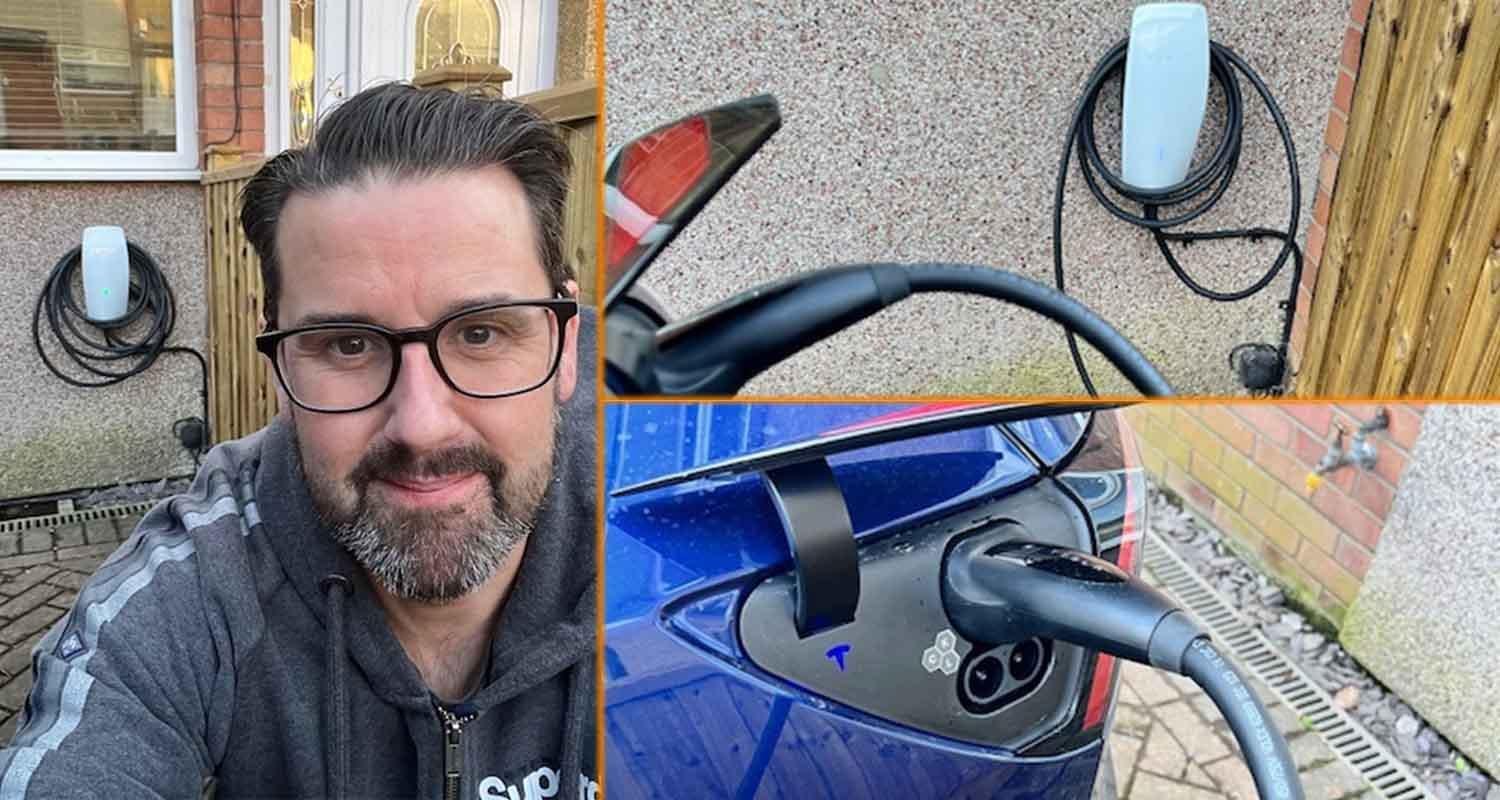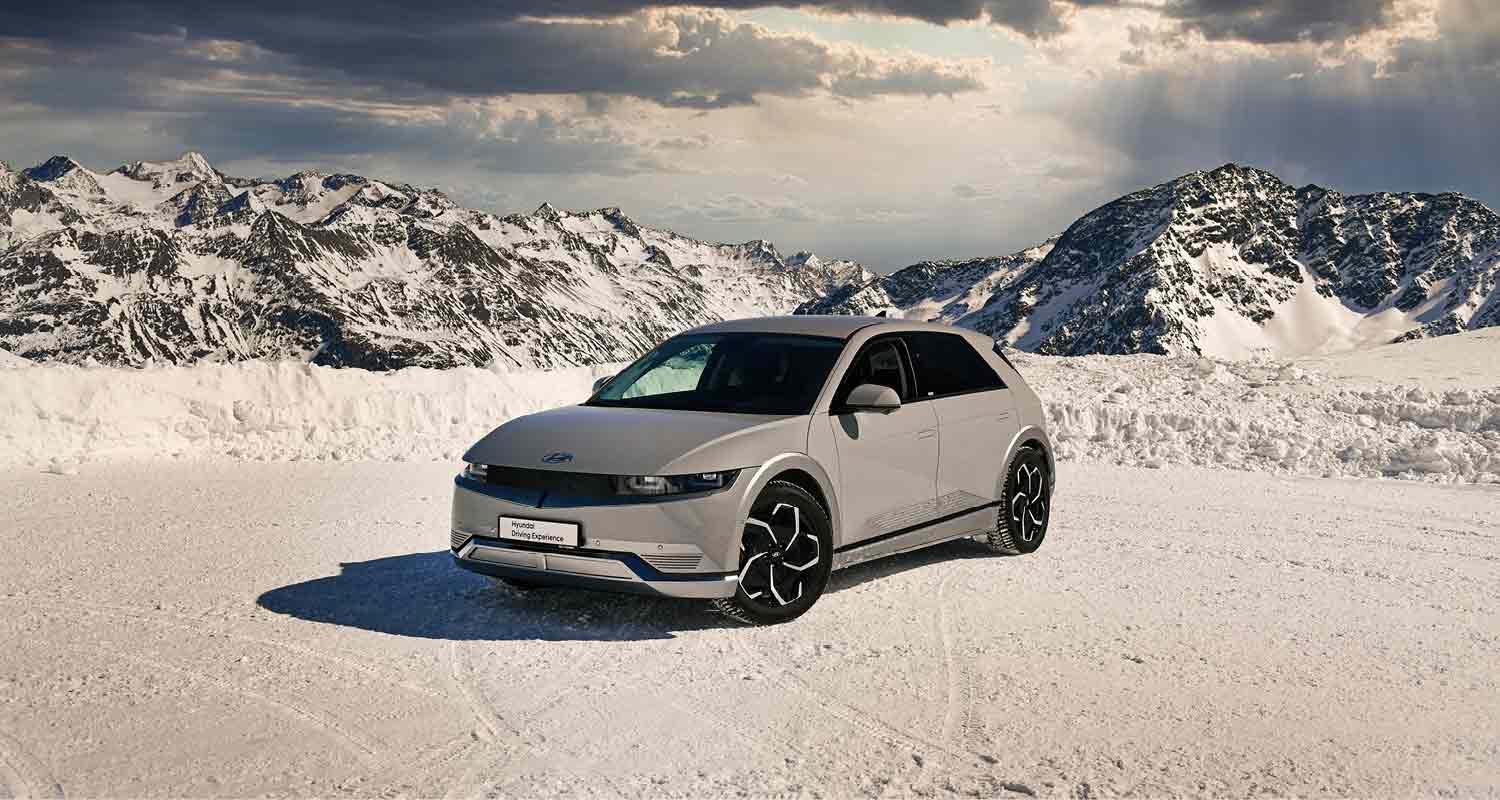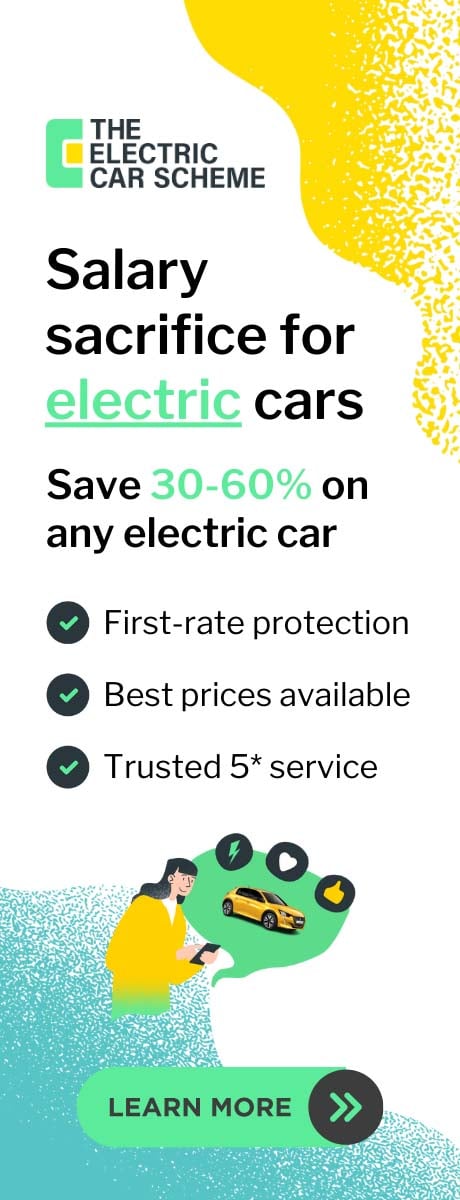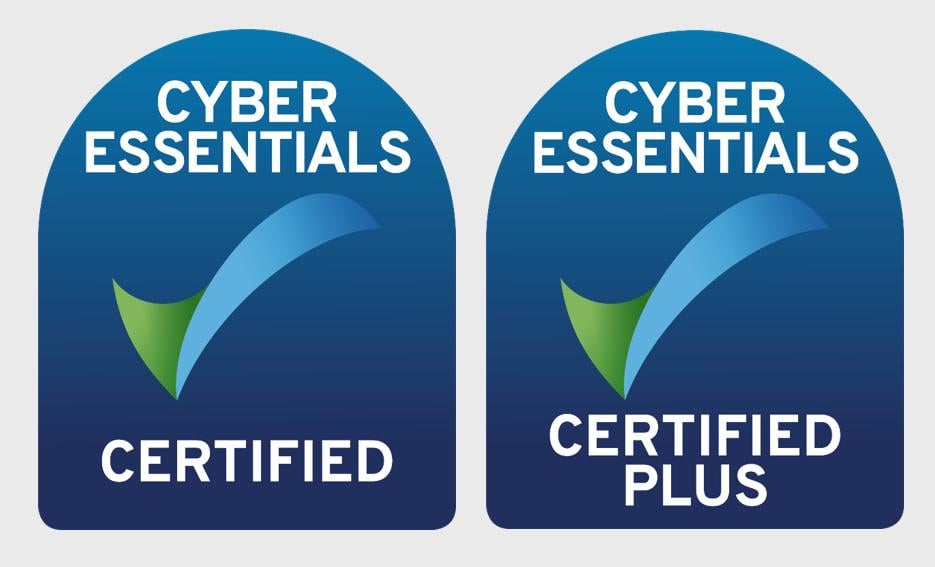What's the difference between AC and DC charging?
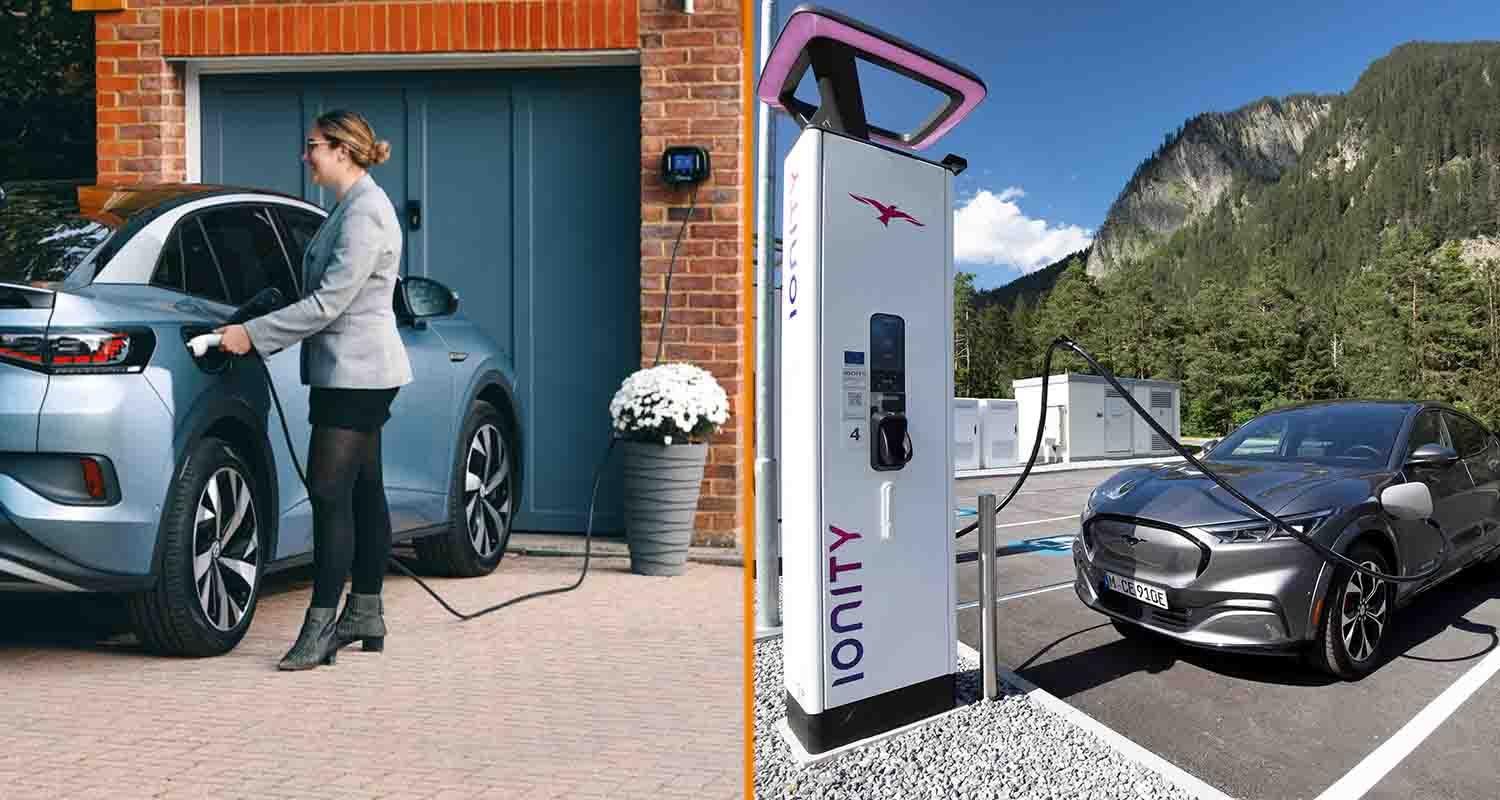
AC (alternating current) and DC (direct current) are two types of electric current that have been around since the Victorian era.
They have both been essential in the commercial energy industry, but essentially, power that comes from the electricity grid will always be AC.
The power in batteries in an EV can only be stored as DC.
Convertors can switch the power between AC and DC, but the important thing to know is that it's possible to charge your EV batteries using both types of current.
Don't worry too much about the AC and DC jargon. Just think about it as a bit like two different fuel types, or one typically being used in domestic and fast charging situations (AC) and then more rapid top ups at a motorway services (DC).
Compare car charging costs
Compare charging costs of both energy tariffs and public charging networks using our cost to charge tool.
AC charging explained
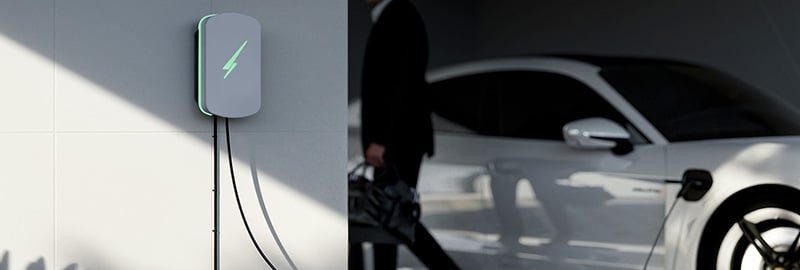
The electricity in your home will typically be AC and it's the type of current that will be used to charge up your EV using your 7kW smart home charger. The converter in the EV will switch that AC home energy into DC energy that is stored in the car's battery.
What types of AC chargers are there?
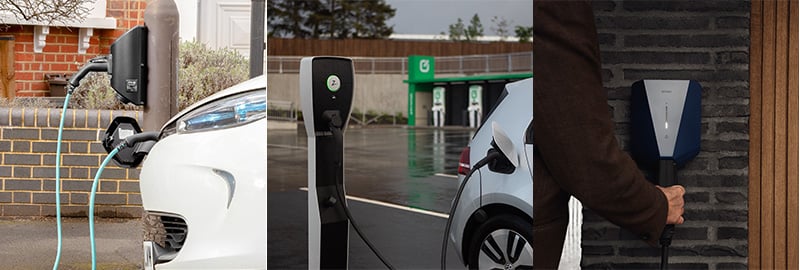
There are a few different types of AC chargers, but they're all the type of chargers where you would plan to park up and charge for some time, rather than a rapid top-up.
Home EV chargers
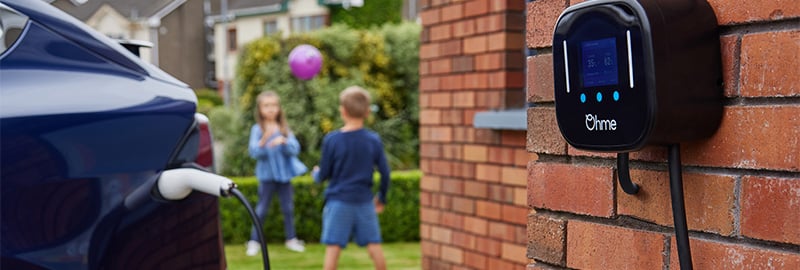
These 7.4kW chargers take the AC current from the home energy provided by your supplier and this is then converted to DC power in the EV for storage in the battery.
This is the standard power output for a smart home charger and it will typically take around six to eight hours to add around 80% capacity back into your EV's battery.
Have a look at the make and model for the electric car you're considering on our directory to get more specific charging times.
Destination chargers
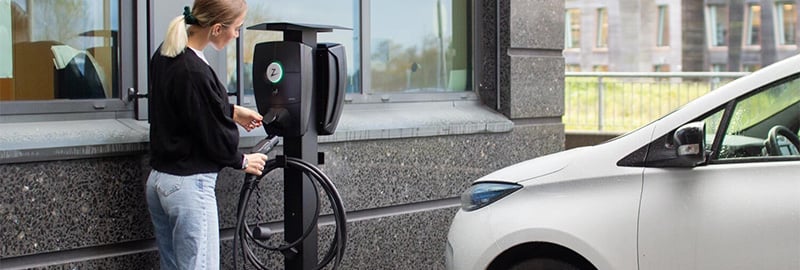
These chargers can be slightly more powerful, typically at 22kW, but they're still an AC type charger. In addition to 7.4kW AC chargers, these faster versions are usually at businesses and car parks where your electric vehicle will be parked up to charge for a while.
You can get a 22kW installed at home, but it's not really necessary when you can charge up with enough power overnight using a 7.4kW version.
A domestic 22kW charger also comes with some additional costs and considerations too.
Read our full guide on three-phase 22kW home charging here.
Rapid AC 43kW

I know we said previously that the simplified way of thinking about AC and DC charging is fast and then rapid, respectively.
However, there is a rapid AC charger with a 43kW version. This was only used by certain networks and very few EVs are actually compatible with it like the Renault Zoe and older Tesla models.
On-street chargers
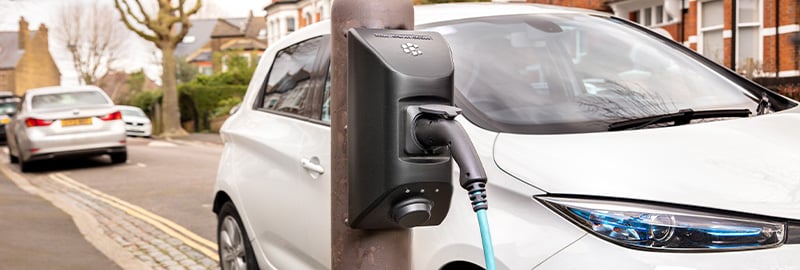
On street chargers will be similar to the destination ones. There might be a mix of 7.4Kw and 22kW AC chargers available, but again, they're aimed at EV drivers that are likely to be parked to charge up for a while, or for drivers that are plugging electric vehicles in for a top-up while they're doing something else like shopping, having a bite to eat, or visiting friends and family.
Want to know more about public charging?
Learn more about the different types of public charge points and how to use them in our guide to public charging
DC charging explained
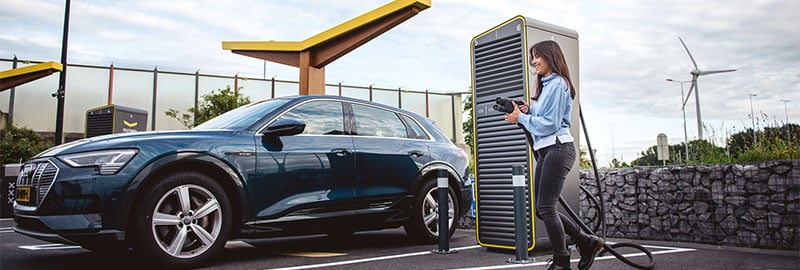
Direct in direct current is the key word here. A DC charge does not need to be converted to be compatible with an EVs battery, which means power can flow directly and so this is where we can see more rapid charging speeds for quicker top-ups to get back on the road.
What types of DC chargers are there?
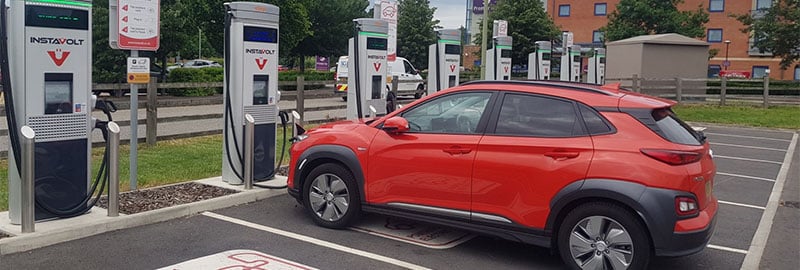
DC charging station technology has progressed to offer faster charging times for EV drivers and these rapid options are making it easier to top-up your battery as quickly as possible.
How quickly you can charge up your battery on the move will depend on your EV battery, and what speed of charge it can accept. The latest EV models typically feature the bleeding edge technology that can accept these super quick charges.
Rapid chargers 25- 50kW
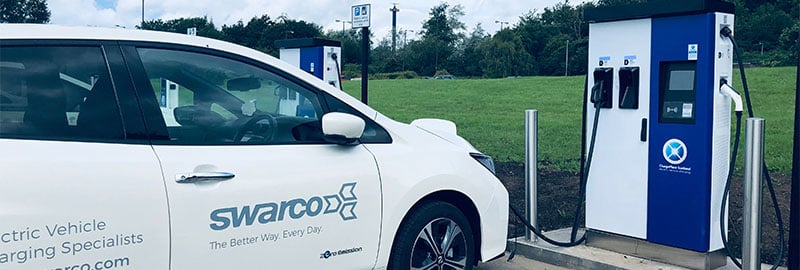
These chargers can typically charge up your EV to 80% in about an hour. This is a good option if you're planning on stopping for a bit longer to grab some food, have a comfort break at the services or you've factored in a longer stop as part of your bigger cross-country trip.
Ultra-rapid chargers 150kW - 350kW
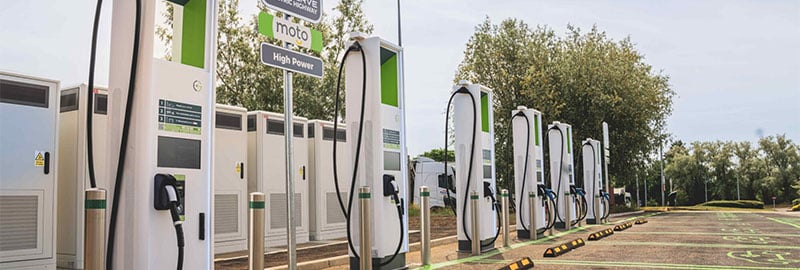
These chargers offer the ability for the latest electric vehicles to charge up their batteries to 80% in as little as 30 minutes.
The 150kW ultra-rapids are usually found at motorway services and networks like Gridserve and Ionity are putting in even more powerful versions up to 350kW, which can deliver around 100 miles of range in about five minutes.
These sorts of speeds are getting EV drivers closer to the kind of speed to "refuel" experienced by those still filling up with petrol and diesel.
It's important to state though that if you're charging at home using your 7.4kW AC power, you'll rarely have to use these ultra rapid charge points, so it's more likely for one off trips or those doing high mileages.
It's also important to note that only certain EVs can accept that 350kW of power, so if you plugged in an electric vehicle that wasn't compatible, it would still only charge at the max rate its capable of.
For example, if your EV has a max charge rate of 50kW and you plugged it into a 350kW charger, it would just charge at 50kW as the maximum, as it doesn't have the technology on board to receive energy at that 350kW rate.
Models like the Hyundai Ioniq 5 and Kia EV6 can charge up to around 230kW to make the most of these ultra-rapid charger speeds.
Newer EVs will get even closer to that 350kW, like the Kia EV9 that can add up to 154 miles in 15 minutes on one of these ultra-rapid DC chargers.
Can I have a DC charger installed at home?
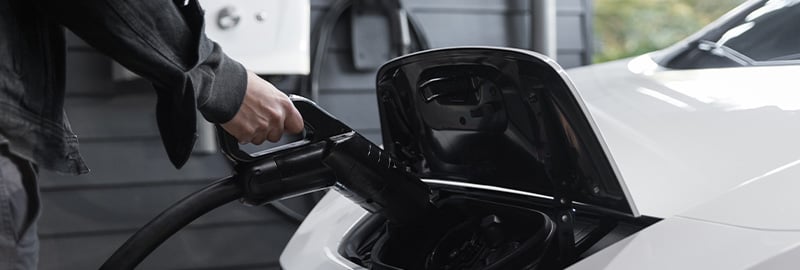
It's technically not impossible, but it would require a lot of investment and upheaval that, in our opinion, would be totally pointless.
Putting in a DC charger, would essentially require you to build your own mini service station, with industrial levels of power and infrastructure in place.
If you're parking up at home and spending any time at your property, a 7.4kW smart home charger will more than suffice to get you to 80% capacity at the lowest price possible.


